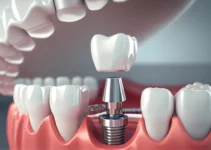Halitosis, commonly known as bad breath, can significantly impact social interactions and self-esteem. It originates from various sources, including poor oral hygiene, dental issues, and certain health conditions. Understanding its causes is the first step toward effective management. This article delves into the underlying reasons for halitosis, its potential effects on daily life, and practical strategies to achieve fresher breath. Implementing regular dental care routines and considering professional advice are vital for both prevention and treatment of this common yet manageable condition.
Understanding the Causes of Halitosis
Halitosis, commonly known as bad breath, can be an embarrassing and socially isolating condition. It affects a significant portion of the population and can be caused by a variety of factors. By understanding the root causes of halitosis, we can take effective steps toward prevention and treatment. In this article, we will delve into the primary causes of halitosis, focusing on dietary factors, oral hygiene, and underlying medical conditions.
Research has shown that up to 50% of adults have experienced halitosis at some point in their lives. The onset of bad breath can be sudden, or it can develop gradually over time. The good news is that by identifying the specific cause of your halitosis, targeted actions can be taken to mitigate or eliminate the issue. Let’s explore some of the main contributors to halitosis.
Dietary Factors and Their Impact
Our diet plays a significant role in the presence and severity of halitosis. Certain foods and beverages can contribute to the development of bad breath. For instance, foods with strong odors, like garlic and onions, are known to cause temporary halitosis. However, the impact of diet extends beyond just these obvious culprits.
When food particles remain in the mouth, they promote the growth of bacteria, which can produce foul-smelling compounds. Additionally, diets high in sugar and alcohol can contribute to halitosis because both sugar and alcohol can promote the growth of bacteria in the mouth. These bacteria feed on food particles and produce volatile sulfur compounds (VSCs), which are a primary cause of bad breath.
Moreover, low-carbohydrate diets can also lead to bad breath. When the body breaks down fat for energy—a process called ketosis—it produces ketones, which can cause an unpleasant odor in the breath. Therefore, it is essential to be mindful of your diet and understand how it can influence oral health.
Oral Hygiene and Its Role
Good oral hygiene is crucial for preventing halitosis. Inadequate brushing and flossing can lead to the accumulation of food particles and plaque, which are breeding grounds for bacteria. These bacteria not only contribute to dental issues like cavities and gum disease but also produce malodorous compounds that result in bad breath.
Here are some essential steps for maintaining good oral hygiene:
- Brush your teeth at least twice a day using fluoride toothpaste.
- Floss daily to remove food particles and plaque between teeth.
- Use an antibacterial mouthwash to reduce bacteria in the mouth.
- Clean your tongue with a tongue scraper or toothbrush to remove bacteria.
Regular dental check-ups are also vital. Dentists can identify and treat issues that may contribute to halitosis, such as gum disease or tooth decay. Professional cleanings can remove plaque and tartar buildup that regular brushing and flossing might miss, further reducing the risk of bad breath.
Underlying Medical Conditions
Halitosis can also be a symptom of an underlying medical condition. Conditions such as chronic sinusitis, respiratory infections, and gastrointestinal issues can all contribute to bad breath. For example, postnasal drip from sinusitis can create an environment in the mouth that promotes bacterial growth.
Certain systemic diseases, such as diabetes and liver or kidney disease, can also cause distinctive odor changes in the breath. Diabetics, for instance, may experience a fruity or sweet-smelling breath due to increased ketone levels. Similarly, individuals with liver or kidney disease might have breath that smells like ammonia. Medications can also play a role. Some medicines reduce saliva flow, leading to dry mouth or xerostomia. Saliva is essential for washing away food particles and bacteria, so reduced saliva flow can exacerbate halitosis. If you suspect that a medical condition or medication is causing your bad breath, it is important to consult with a healthcare provider for appropriate diagnosis and treatment.
Understanding the root causes of halitosis can empower you to take effective steps toward fresher breath and better oral health. For more information on related topics, be sure to check out our other articles.
Long-term Consequences of Halitosis
Halitosis, commonly known as bad breath, can have significant long-term consequences that extend beyond mere social embarrassment. While it might seem like a minor inconvenience, chronic halitosis can be indicative of underlying health issues and can contribute to various negative outcomes over time. Understanding these consequences is crucial for both patients and healthcare providers.
One of the primary long-term consequences of halitosis is its potential to affect oral health. Persistent bad breath often signifies the presence of periodontal disease, tooth decay, or other oral infections. These conditions, if left untreated, can lead to more severe health problems, including systemic inflammation and an increased risk of cardiovascular diseases.
In addition to oral health issues, halitosis can also have psychosocial impacts. Individuals suffering from chronic bad breath may experience anxiety, reduced self-esteem, and even depression. The stigma associated with halitosis can hinder social interactions and adversely affect both personal and professional relationships.
Psychosocial Effects
The psychosocial effects of halitosis are profound and multifaceted. One of the most immediate impacts is on an individual’s self-confidence. People with chronic bad breath often become self-conscious, worrying constantly about their breath during conversations. This anxiety can lead to social withdrawal, making it difficult for them to engage fully in social and professional settings.
Moreover, halitosis can deteriorate personal relationships. Partners or close friends may feel uncomfortable discussing the issue, leading to strained interactions. This discomfort can create a barrier in communication, resulting in misunderstandings and even resentment over time. The fear of judgment can prevent individuals from seeking help, perpetuating the cycle of anxiety and isolation.
In the workplace, the professional consequences of halitosis can be equally damaging. Bad breath can affect one’s ability to network effectively, collaborate with colleagues, or even secure job opportunities. The importance of first impressions cannot be overstated, and halitosis can severely undermine one’s professional image and credibility.
It’s essential to address the psychosocial effects of halitosis with sensitivity and empathy. Healthcare providers should encourage patients to seek comprehensive treatment plans that address both the physical and emotional aspects of the condition. By doing so, we can help alleviate the long-term consequences of halitosis and improve overall quality of life.
For those interested in learning more about the impact of oral health on overall well-being, we invite you to explore our other articles that delve into related topics.
Strategies for Maintaining Fresh Breath
Maintaining fresh breath is crucial not just for your confidence, but also for your overall oral health. Poor oral hygiene and bad breath can be indicative of more serious issues such as gum disease or tooth decay. Understanding and implementing effective strategies to keep your breath fresh can significantly enhance your quality of life. This can be achieved through a consistent oral care routine, natural remedies, and recognizing when to consult a dental professional.
By following a tailored approach that combines daily care, natural solutions, and professional advice, you can effectively manage and improve your breath. Let’s delve into some practical strategies that can help you maintain fresh breath.
Daily Oral Care Routine
A solid daily oral care routine forms the foundation for maintaining fresh breath. Brushing your teeth at least twice a day using fluoride toothpaste is essential. This helps remove food particles and plaque buildup, which are the main culprits behind bad breath. Additionally, flossing daily can reach areas that a toothbrush might miss, ensuring a more thorough cleaning.
It is equally important to clean your tongue, as bacteria can accumulate and produce foul odors. A tongue scraper or a toothbrush with a built-in tongue cleaner can be used for this purpose. Don’t forget to replace your toothbrush every three to four months to ensure its effectiveness.
Incorporating mouthwash into your routine can provide an extra layer of protection. Choose an antibacterial mouthwash that targets the bacteria responsible for bad breath. Here are some key points to remember for your daily oral care routine:
- Brush teeth twice daily with fluoride toothpaste
- Floss daily to remove plaque and food particles
- Clean your tongue regularly
- Use an antibacterial mouthwash
- Replace your toothbrush every three to four months
Home Remedies and Natural Solutions
Natural remedies can be a great addition to your oral hygiene routine. They are often inexpensive and readily available. One popular natural solution is chewing parsley, which contains chlorophyll—a natural deodorizer. Additionally, drinking green tea has been shown to reduce the levels of sulfur compounds in the mouth, which are responsible for bad breath.
Another effective home remedy is oil pulling, an ancient practice that involves swishing oil (typically coconut or sesame oil) in your mouth for about 15-20 minutes. This method helps to remove toxins and improve oral hygiene. Essential oils like peppermint and tea tree oil can also be added to water and used as a mouth rinse.
Here are some home remedies and natural solutions you can try:
- Chew parsley or mint leaves
- Drink green tea regularly
- Practice oil pulling with coconut or sesame oil
- Use essential oils like peppermint in a mouth rinse
When to Seek Professional Help
While home care and natural remedies are effective, there are times when professional help is necessary. If you’ve consistently followed a good oral care routine and tried natural solutions but still suffer from bad breath, it may indicate an underlying medical condition such as gum disease, diabetes, or gastrointestinal issues. Professional dental cleanings are essential for removing tartar buildup that regular brushing and flossing can’t address. Your dentist can also provide personalized advice and recommend treatments that are specific to your needs. Another advantage of seeking professional help is the possibility of identifying and treating any systemic conditions contributing to bad breath.
Don’t hesitate to schedule an appointment if you experience persistent bad breath, tooth pain, or other oral health issues. Regular dental check-ups can help you stay ahead of potential problems and maintain fresh breath.
Understanding when to seek professional help can save you from discomfort and more serious health issues down the line. By combining professional dental care with daily maintenance and natural remedies, you can achieve and maintain fresh breath.
If you found this information helpful, consider exploring other articles on our site for more tips and expert advice on oral health.
Understanding Halitosis
Halitosis, commonly known as bad breath, can be embarrassing and in some cases may even cause anxiety. Here’s a brief exploration into the causes of halitosis and effective strategies to maintain fresh breath.
What are common causes of halitosis and how can it be treated?
Halitosis can be caused by various factors including poor oral hygiene, dry mouth, infections in the mouth, sinus or throat infections, tobacco use, and certain medical conditions like diabetes, liver or kidney issues. Treatment typically involves good oral hygiene, such as brushing and flossing regularly, using antibacterial mouthwashes, staying hydrated, and regular dental checkups. In cases related to medical conditions, treating the underlying issue may help improve breath odor.

My name is Salman Kapa, a 73-year-old expert in bone regeneration and dental implantology. With decades of experience in the field, I am dedicated to advancing our understanding of oral health and hygiene. Through my research and writing, I aim to contribute to the development of innovative solutions in dental care.




